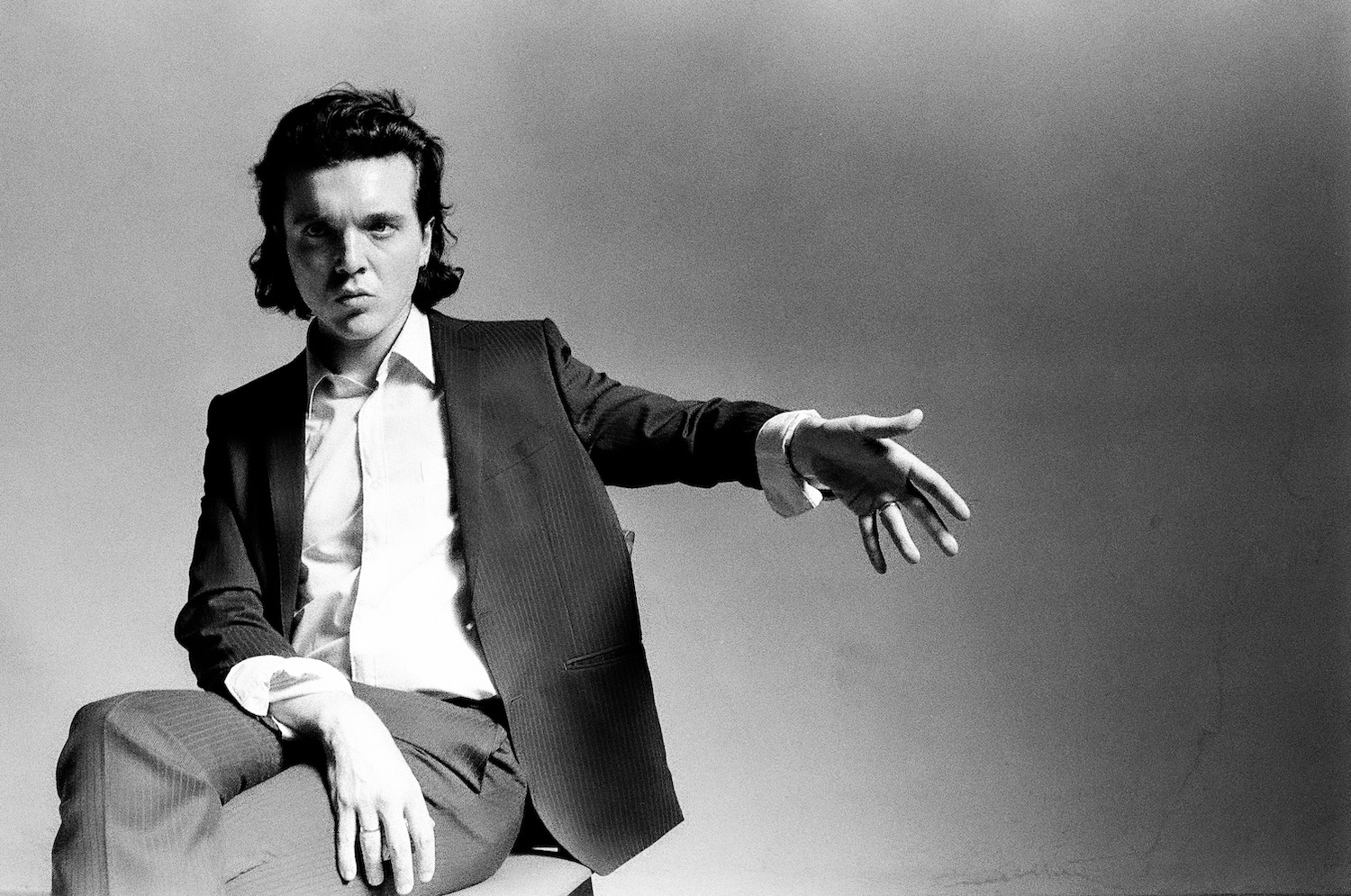
Tim Rogers & The Twin Set
Tines of Stars Unfurled
What Rhymes With Cars and Girls? It can take the most skilled and seasoned song and dance man decades to work that out. Decades in which smirking strangers have often sidled up to him — “always when I’m ordering sandwiches,” Tim Rogers puzzles — to offer well-meaning suggestions like “Bars and curls, mate” or “Galahs in pearls”.
Tines of Stars Unfurled is the answer — or at least, it’s the only one that applies to the story the You Am I frontman began 23 years ago with an album that quickly become one of his most cherished, a ‘solo’ debut backed in truth by the roughshod country barstool confessional camaraderie of a band called The Twin Set.
Tines of Stars Unfurled is that rarest of rock’n’roll phenomena, the sequel album. With Jen Anderson’s fiddle returning to a front line of faithful folk-rock footsoldiers, it’s an album of 11 songs penned as considered ripostes and rejoinders to each song on that first album.
“I needed to correct some wrongs, even if just for myself,” Rogers says, choosing for example the first single, Been So Good Been So Far. It’s a clear reflection of ‘99’s You’ve Been Good To Me So Far, that much-loved letter to a significant other, but “every time I sang that song, I’d think, who is this person? It was clumsy. A couple of other songs didn’t ring true to me, either. They did at the time maybe, but I think it was a pose.”
The pose fades and the artist digs deeper as life unfurls. In the process, the reckless collisions of I Left My Heart All Over the Place give way to the sober (at least for a moment) rendezvous of I Left My Heart In A Country Church Hall. The blurry romance of Happy Anniversary pales to the aching grief of A Quiet Anniversary. The Saturn Returning self-regard of 28 looks out with pride to the daughter who’s (heavens to murgatroid) 22.
“It began as a writing exercise,” Rogers says of what is, all albums considered, his ninth outside You Am I. “There was a stage play of What Rhymes With Cars and Girls that Aiden Fennessy wrote… and each night, I’d be hearing the characters sing the songs and having these terrible panic attacks…
“Rather than just go straight to my hip flask and get pissed on stage, I thought, ‘What if I updated all these songs?’ And so I started writing them. It was fun, and it quelled the anxiety. It kind of worked, so I thought ‘We should pursue this’.”
‘We’ meant first and foremost Jen Anderson. Back in ’99, she and Tim had grown close when he moved from Hollywood to Melbourne to nurse his heart after a relationship went south. “She introduced me to her mates a relationship went south. “She introduced me to her mates and her world. Every musician on Cars and Girls was a friend of Jen’s.
She engineered the album in her basement. Released the demos, effectively, in all their spontaneous acoustic glory. But life got in the way shortly after its release, so what should have been a triumphant follow-up tour landed in the unfinished business pile.
“I was nervous about it,” Tim confesses of rekindling their musical chemistry, but “she said, ‘Yeah, OK, I’ll put some soup on’… Musically, we just work. And we haven’t worked together for 23 years. So better late than never.”
Other original Twin Set companions were overseas or sadly departed, but many have rejoined the fray: guitarist Davey Lane, Mark ‘Squeezebox Wally’ Wallace and showstopping duet partner Sally Dastey, updating the duck-and-weave of Up-A-Ways with a new song of bruised reflection titled Up-A-Get (Ta Bron Orm). There’s a different kind of reprise in old Temperance Union bandmate Pete Lawler duetting on Can You Just Do It For Me Friend.
“I rewrote each song on this record about three times,” Tim says. “Stylistically, they’re all acoustically based. But they all had different tempos and different strumming patterns and different chords and melodies. So different songs essentially, but with the same lyrics.
“I guess that was my attraction to country music and folk music, in that the lyrics were so exposed and … there’s nowhere to hide. It’s a different form of writing in that the lyrics are just out there to be to be heard and scrutinised if folks want to.”
There’s much to glean in the way of wisdom and experience since that first Twin Set album of greener days. There’s a gentler regard for fellow travellers in I Live Near The Train Station; a less dishevelled and rancorous spirit in That Arse-Kickin’ Song. There’s less piss and vinegar in Get High Support the Band; less sadness and more paternal warmth to The Drinks They Drained As I Drove Away.
“I think this and the last You Am I record are the first ones where I’ve really … crossed things out and tried to get the scansion right, make sure they make sense; there’s a purpose to them, it’s not just wordplay. I guess with the strum and thrum of acoustic guitars and quieter drums…” he leaves that sentiment open to interpretation, like all seasoned songwriters do.
Speaking of which, Tim can’t definitively say whether there’s any precedent in the country-rock-folk encyclopedia for an album quite like this one; an album in which new songs answer old songs track-by-track across a 20-year divide of innocence and experience.
“The only person I could think of who might do it is Loudon Wainwright. He’s the kind of wisearse who would,” he says, “but I haven’t researched it because I don’t want to know! Because Loudon or Guy Clark or John Prine for example would talk about getting older so well… I thought, OK, there’s nothing wrong with writing songs about getting older. Just don’t make it dull!
“Because my life isn’t dull at 53. If anything, it’s stupider at 53 than it was at 28. When I was 28 I was still scared of everything. I’m better at life now. And I’m not so scared anymore.”



